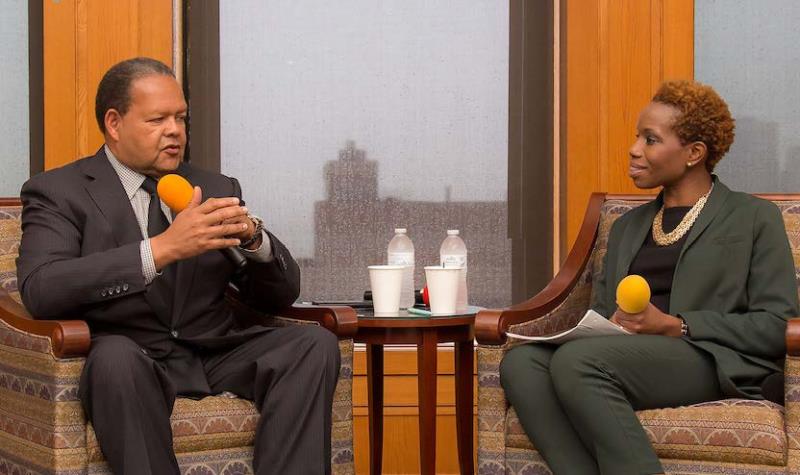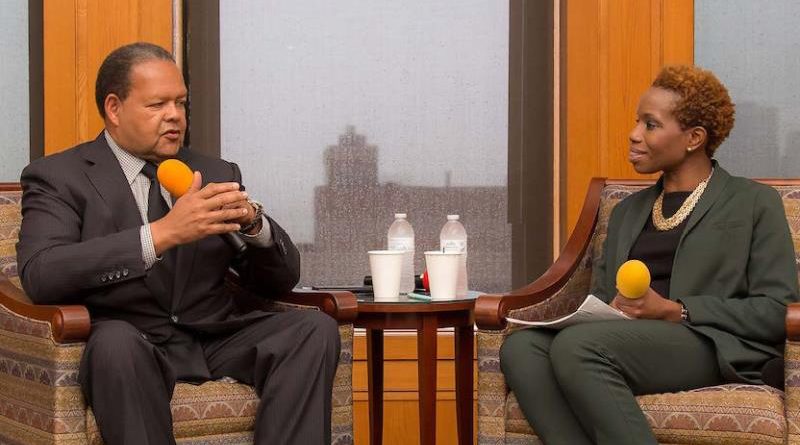Lessons on Leadership from Rudy Crew

NYCHA held its 10th Senior Leadership Meeting at the Brooklyn Law School on May 5. The theme of the quarterly forum was “Don’t Waste a Crisis: Manage Your Risk.”
A highlight of the meeting was an interview by Chair and CEO Shola Olatoye with Dr. Rudolph F. “Rudy” Crew, New York City Schools Chancellor under former Mayor Rudolph Giuliani and now President of Medgar Evers College.
Dr. Crew’s candid remarks about his experiences working to transform major public education systems contained lessons on leadership that were not lost on NYCHA’s senior managers.
Following are summarized remarks from the Chair’s interview.
What are the risks and expectations of accepting a new position with an organization undergoing change?
Change management requires a perspective in time management. Decide how long a period you need to stay in a job, usually five to seven years. Do it fast and get off the stage. You can make dramatic change but it will cost you.
In a big organization, how do you know where to begin?
You need to pull things apart to create smaller pieces you can deal with. The hardest thing is the redistribution of money. How to disaggregate what you spend where? Some areas need proportionately more money but you have to know what other areas will be upset.
What are some of the challenges in taking on a new position?
The challenge is to withstand the pressure of other people’s solutions versus yours. I reject the temptation to accept other people’s definition and solution of the problem. If you hire me, I need autonomy to do the job.
How do you motivate staff to buy into your vision?
First you need to create a compelling vision so people are willing to go there. Generally one third of the workforce will be non-believers in your vision. Let people leave if they want. For those who remain, accountability has to be performance based. Give people their own brush and tell them to start painting.
What were interactions like between public service agencies?
In Miami and here, we were trying to collectively leverage each others’ resources. These relationships now are under leveraged; our problems require collaboration among agencies more than ever before. In funding NYCHA and health and education, we should examine economies of scale to better leverage resources interdisciplinarily.
You can view the entire interview by clicking here: http://connect/News/Lists/Posts/Post.aspx?ID=305.







